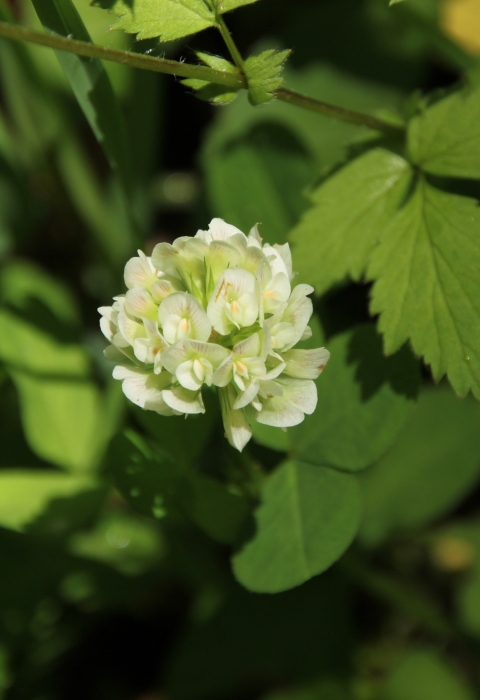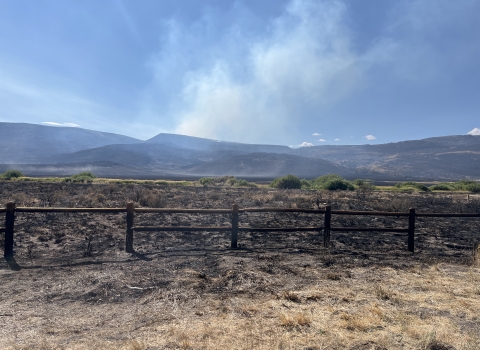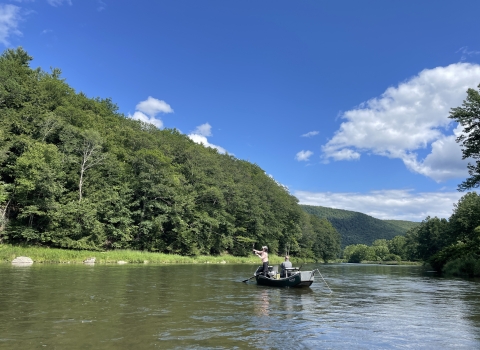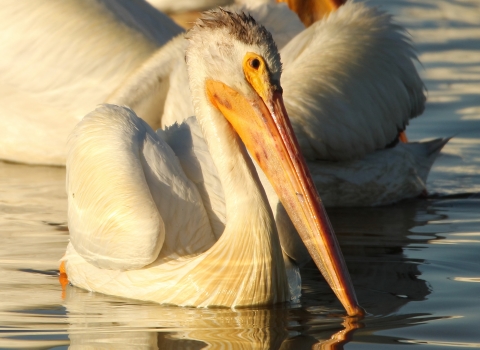We at the Midwest Region of the U.S. Fish and Wildlife Service applaud the efforts of four Midwesterners whose work has advanced conservation and recovery of imperiled species. Honored with the Endangered Species Recovery Champion award are Marjie Becus and Jenny Finfera of Ohio, Megan Bradley of Minnesota and Ronda Rimer of Missouri.
“Recovery champions are examples of extraordinary dedication, creativity, scientific excellence and collaborative spirit,” said Charlie Wooley, Midwest Regional Director for the agency. “Each of these individuals has helped us leap forward to ensure the survival of endangered and threatened species for future generations.”
Marjie Becus, a volunteer from Loveland, Ohio, and Jenny Finfera, Columbus, Ohio, received the national recovery champion award for their work to recover the running buffalo clover, a plant listed as endangered in 1987 with only one known population. Becus, who volunteered many hours to recover the plant, and Finfera, a Service biologist, were acknowledged for working with land managers, conducting monitoring, restoring habitat and enhancing habitat. They worked to design an influential outreach and education program and trained generations of emerging biologists on the identification, importance, and habitat requirements of this species in order to sustain populations into the future. Thanks in large part to the work of Finfera and Becus, the running buffalo clover can be found in more than 170 locations in five Midwestern states.
Megan Bradley, a mussel propagation specialist at the Genoa National Fish Hatchery in Genoa, Wisconsin, received the Midwest Region recovery champion award for her work with endangered freshwater mussels in the Upper Mississippi River. Bradley worked with other agencies, tribes and national and international partners to improve the status of several species of imperiled mussels through her efforts to map suitable habitat, create new populations, monitoring released mussels and planning and implementing programs to raise and release endangered species like the Higgins eye pearlymussel, the winged mapleleaf mussel and the spectaclecase mussel. Bradley has been instrumental in establishing the cost of replacing mussels affected by environmental contaminants, enhancing the ability to recover damages and restore these species.
Rhonda Rimer, a natural history biologist with the Missouri Department of Conservation in Springfield, received the Midwest Region recovery champion award for her leadership in the recovery of Virginia sneezeweed, a threatened plant, in Missouri. Virginia sneezeweed was once thought to exist only in Virginia, but was subsequently found in Missouri. Rimer collected seeds for a propagation experiment, and her work turned into a major success. Rimer then spent several years searching for additional populations of the plant in Missouri and found Virginia sneezeweed in a variety of habitats, including sinkholes, roadside areas and farm ponds. Rimer’s work led to the discovery of more than 60 additional populations of Virginia sneezeweed in Missouri, nearly triple the number known in Virginia. Rimer was also a major contributor to the U.S. Fish and Wildlife Service’s status review of the Virginia sneezeweed, leading to a Service recommendation to propose the species for removal from the endangered and threatened species list due to recovery.
Marjie Becus, Jennifer Finfera, Megan Bradley and Rhonda Rimer join other recovery champions across the country whose efforts are helping keep endangered and threatened plants and animals from extinction. Learn more about endangered species recovery champions.



